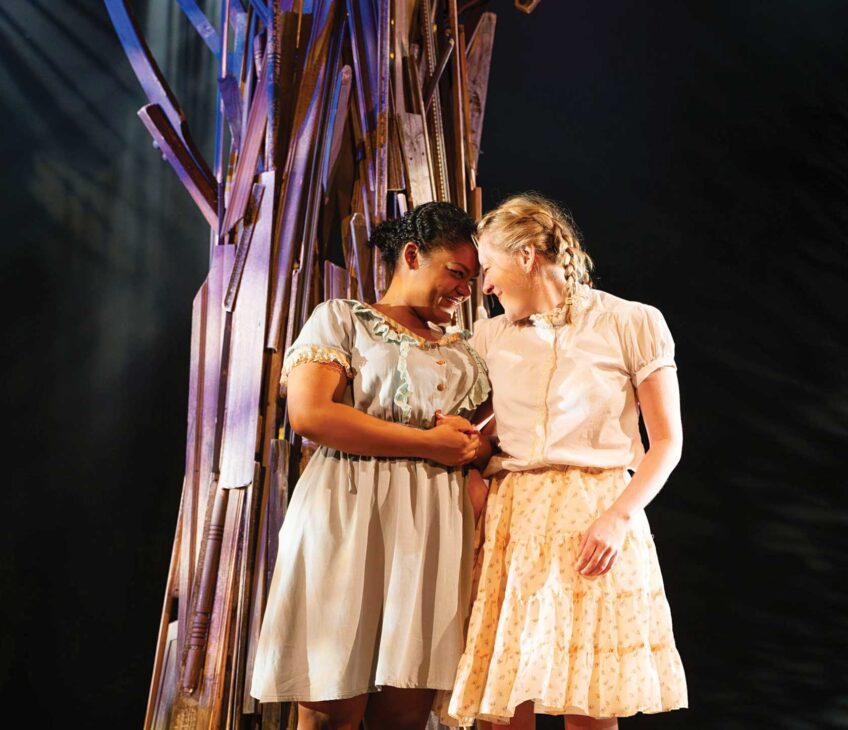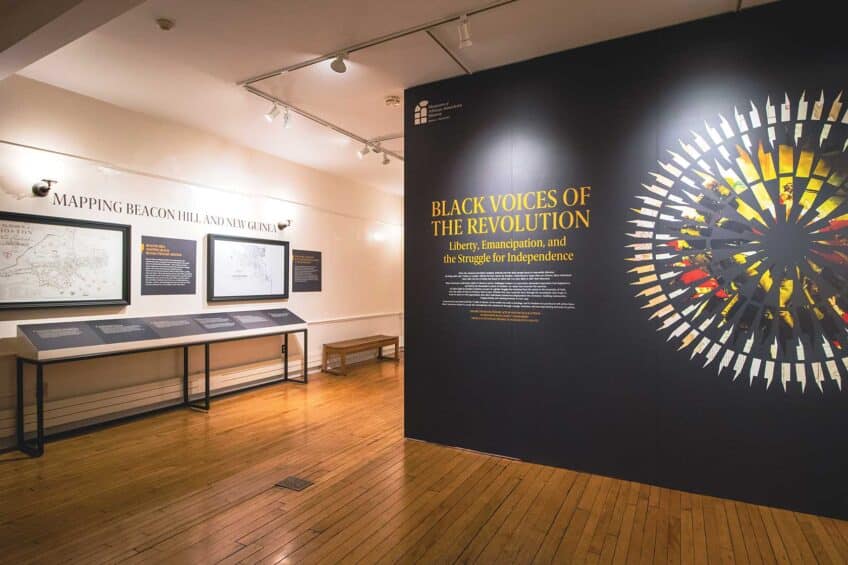
Country music is having its moment. With the release of Beyoncé’s “Cowboy Carter” record, Shaboozey’s chart-topping single “A Bar Song (Tipsy)”, and Sabrina Carpenter’s roots-inspired “Slim Pickins,” the genre appears to be at the forefront of pop culture, with various artists embracing its sound. But its history is often overlooked.
Despite the evidence that country music is steeped in Black traditions, the belief that it’s “exclusively white music” persists, said Farayi Malek, a Grammy-nominated jazz vocalist, singer-songwriter, composer and assistant professor of ensembles at Berklee College of Music. Malek rejects that idea.
“That narrative is incorrect,” she said, adding that it’s “important for us to acknowledge the contributions of Black artists in country music … for the students, but also for the community.”
That’s the goal of “Country Music: Black Roots and Branches,” a concert produced by Malek and her colleague Matt Glaser, artistic director of Berklee’s American Roots music program and music historian, to spotlight the involvement of Black musicians in country music.
Scheduled for Oct. 29 at the Berklee Performance Center, the event will feature performances by Malek, Afro-futurist string band New Dangerfield, Grammy-winning American roots musician Dom Flemons, and vocalist Donna McElroy. Each set will celebrate the work of Black country music legends and the songs influenced by country music.
Malek, who is biracial, grew up in Idaho singing country and old-timey music and playing the fiddle. As a young girl, she noticed the shortage of people who looked like her in the country and roots music space. She didn’t understand why, but as she got older and began teaching music, she became interested in learning more about the Black people’s impact on the genre.
While the growing prominence of country music in pop culture played a small part in the nascence of the idea for the “Country Music: Black Roots and Black Branches” concert, Malek and Glaser wanted to call attention to its beginnings.
“All music in America is Black music, whether or not the people playing at a particular moment are Black or white,” said Glaser. “It’s very important for Americans to realize the centrality of Black music in American music, and country music is just one of those facts in that regard.”
What many perceive as “white country music” has its roots in the work of Black people who may be lesser known, Glaser said, people like Arnold Shultz, a Black man whose music many might not recognize but who significantly influenced Bill Monroe, who is dubbed “the father of bluegrass music.”
Black stories are equally influential in American roots music. Take, for example, the murder ballad “Frankie and Johnny.” The song, which will be performed at the concert, tells the tale of a Black woman in 1800s St. Louis, Missouri, who, in self-defense, killed her boyfriend by gunshot after he attacked her with a knife.
“Frankie and Johnny” exploded, Glaser said, taking off first in the Black community and then in the white community until dozens of musicians had recorded renditions of it — Black country blues artists, white, rural, old-timey musicians and commercial country artists — so much so that Glaser said he has over four hours of recordings of the song.
“An experience of a Black woman gave rise to a huge range of music in America,” he said. “So all of music is based in the experience of particular Black Americans, as well as … Black music itself being the generating engine across all styles of music.”
In her set, Malek will touch on both the roots and branches of country music. For the roots, she will perform tributes to icons Linda Martell and Ray Charles and, to honor her personal experience as a Black country singer, she will also perform songs from her childhood, like Patsy Cline’s “Faded Love” and Hank Williams’ “Your Cheatin’ Heart.”
As for the branches, an ode to contemporary and emerging country artists, Malek will sing an original piece from her upcoming EP “Edge of the Earth.”
Malek admitted that she only began leaning into the country music side of her artistry fairly recently, because of her childhood experience of the genre that falsely presented it as being exclusive.
She says, “Now, being an artist, and coming into myself as an artist … I do think it’s important to acknowledge that past and then also to be that representation for other Black country artists.”





